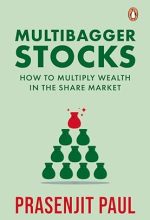Investing in the stock market can seem terrible at first, but with the right knowledge and understanding, it can be a rewarding endeavour. In this article, we will discuss what is stock market and its every aspect, from its origins to how it functions, the various types of stocks, market exchanges, investment strategies, and more.
Introduction to the Stock Market
What is the Stock Market?
The stock market refers to the collection of markets and exchanges where the issuing and trading of equities, bonds, and other securities occur. It serves as a vital platform for companies to raise capital and for investors to buy and sell financial instruments.
Importance of the Stock Market
The stock market plays a crucial role in the economy by facilitating investment, encouraging corporate growth, and providing liquidity to investors.
History of the Stock Market.
Origins of the Stock Market
The stock market has its roots in the trading of joint-stock companies in the 17th century. The Dutch East India Company is often cited as the world’s first publicly traded company, marking the beginning of modern stock markets.
Key Historical Events
Throughout history, the stock market has experienced significant events such as the Wall Street Crash of 1929, which led to the Great Depression, and the dot-com bubble of the late 1990s.
Functions of the Stock Market.
Facilitating Investment
The stock market enables individuals and institutions to invest in companies, allowing them to share in the company’s profits and growth potential.
Providing Liquidity
One of the essential functions of the stock market is to provide liquidity, allowing investors to buy and sell securities quickly and efficiently.
Pricing Securities.
The stock market helps determine the prices of securities through the forces of supply and demand, reflecting the perceived value of a company’s assets and future earnings potential.
Participants in the Stock Market.
Investors.
Investors in the stock market are individuals or entities who allocate capital to generate returns. They participate in the financial markets by purchasing stocks, which represent ownership stakes in publicly traded companies. These investors analyze factors such as company financials, market trends, and economic indicators to make informed decisions about buying, holding, or selling stocks.
Investors come in different forms, including individual retail investors, institutional investors such as mutual funds, pension funds, and hedge funds, as well as private equity firms and venture capitalists. Each investor has their investment objectives, risk tolerance, and time horizon, which influence their investment strategies.
Some investors seek long-term growth and income through dividend-paying stocks, while others engage in short-term trading to capitalize on market fluctuations. Regardless of their approach, investors play a crucial role in the stock market ecosystem, providing capital for companies to grow and innovate while also bearing the risks associated with investing in equities.
Stockbrokers.
Stock brokers are intermediaries who facilitate transactions between buyers and sellers in the stock market. They act as agents on behalf of their clients, executing trades and providing various services related to buying and selling stocks.
In the stock market, which is a marketplace where securities such as stocks and bonds are bought and sold, stock brokers play a pivotal role by connecting investors with the opportunities available in the market. They provide access to trading platforms and offer research and analysis to help investors make informed investment decisions.
Stock brokers can be individuals or firms licensed to buy and sell securities on behalf of investors. They execute orders placed by investors, ensuring that transactions are completed efficiently and at the best available prices. Additionally, stock brokers may offer advisory services, helping clients develop investment strategies tailored to their financial goals and risk tolerance.
The relationship between investors and stock brokers is built on trust and transparency. Investors rely on brokers to execute trades promptly and accurately, while brokers must adhere to regulatory standards and act in the best interests of their clients.
Market Makers
Stock market makers are essential participants in the dynamic landscape of the stock market. In essence, the stock market represents a platform where buyers and sellers come together to trade shares of publicly traded companies. Market makers play a pivotal role in ensuring the smooth functioning of this marketplace.
These entities, often brokerage firms or financial institutions, stand ready to buy or sell securities at publicly quoted prices. They continuously provide liquidity to the market by offering to buy securities from sellers or sell securities to buyers, thereby facilitating the efficient matching of buy and sell orders.
Market makers accomplish this by quoting bid and ask prices for specific securities throughout the trading day. The bid price is the maximum price that a buyer is willing to pay for a security, while the ask price is the minimum price at which a seller is willing to sell. The difference between the bid and ask prices, known as the spread, represents the market maker’s profit margin.
By actively participating in trading activities, market makers help reduce price volatility and enhance market efficiency. They play a crucial role in maintaining orderly markets, especially during times of high trading volumes or market stress.
Market makers also contribute to price discovery by incorporating new information and market dynamics into their pricing strategies. This process helps ensure that stock prices reflect the most current market conditions and available information.
Types of Stocks
Common stocks and preferred stocks are two primary types of equity securities that companies issue to raise capital from investors. While they both represent ownership in a company, they have distinct characteristics and rights associated with them.
Common Stocks
Common stocks are the most typical form of ownership in a corporation. When individuals purchase common stocks, they essentially become partial owners of the company. Key features of common stocks include:
-
- Voting Rights: Common stockholders typically have voting rights in the company’s annual general meetings. These rights allow them to participate in decisions affecting the company, such as the election of the board of directors and major corporate policy changes.
-
- Dividend Payments: Companies may choose to distribute a portion of their earnings to common stockholders in the form of dividends. However, dividend payments are not guaranteed and are subject to the company’s financial performance and board decisions.
-
- Residual Claim on Assets: In the event of liquidation or bankruptcy, common stockholders have a residual claim on the company’s assets. This means that they receive whatever assets remain after creditors, bondholders, and preferred stockholders have been paid.
Preferred Stocks
Preferred stocks are a class of stock that typically carries certain preferences over common stocks. While they also represent ownership in a company, preferred stockholders have different rights compared to common stockholders:
-
- Priority Dividends: Preferred stockholders have priority over common stockholders when it comes to dividend payments. Companies must pay dividends to preferred stockholders before distributing any to common stockholders.
-
- No Voting Rights or Limited Voting Rights: In many cases, preferred stockholders do not have voting rights in company matters. If they do, their voting rights are usually limited or restricted.
-
- Fixed Dividend Payments: Preferred stocks often come with fixed dividend rates, providing investors with a predictable income stream. However, companies are not obligated to pay dividends if they lack the financial resources to do so.
-
- Preferential Treatment in Liquidation: In the event of liquidation or bankruptcy, preferred stockholders have a higher claim on the company’s assets compared to common stockholders. They are entitled to receive their investment back before common stockholders receive any proceeds.
Stock Market Exchanges
Major Stock Exchanges Globally
Stock exchanges such as the National Stock Exchange (NSE) and Bombay Stock Exchange (Sensex) serve as primary platforms for trading stocks and other securities.
Differences Between Exchanges
Exchanges differ in terms of listing requirements, trading hours, and the types of securities traded.
How the Stock Market Works
Buying and Selling Stocks
Investors buy stocks through brokerage firms and can sell them at any time through the same brokerage or on the exchange.
Market Orders vs. Limit Orders
A market order is an instruction to buy or sell a stock at the current market price, while a limit order specifies the maximum or minimum price at which an investor is willing to buy or sell.
Factors Affecting the Stock Market
Economic Indicators
The stock market is influenced by a multitude of factors that collectively shape its movements and behavior. Understanding these factors is crucial for investors and analysts seeking to navigate the complexities of the market.
One of the primary drivers impacting the stock market is economic indicators. Key metrics such as GDP growth, unemployment rates, inflation levels, and interest rates can significantly influence investor sentiment and market dynamics. Positive economic data often translates to increased investor confidence, driving stock prices higher, while negative economic indicators can lead to market volatility and downturns.
Political & Geo-Political Events
Political events, including elections, government policies, and geopolitical tensions, can impact the stock market by affecting investor confidence and market stability.
Government policies and regulatory decisions can also impact the stock market. Changes in fiscal policy, monetary policy, tax laws, and regulatory frameworks can have far-reaching implications for businesses and investors. Anticipated policy shifts or unexpected announcements from policymakers can trigger market reactions and influence investor behavior.
Global events and geopolitical tensions are additional factors that can affect the stock market. Developments such as trade disputes, geopolitical conflicts, natural disasters, and public health crises can create uncertainty and volatility in financial markets worldwide.
Market Sentiment
Investor sentiment, which reflects the overall attitude of investors toward the market, can influence buying and selling decisions and market trends.Market sentiment and investor psychology also play a pivotal role in driving stock market fluctuations. Investor sentiment reflects collective perceptions of market conditions, risk appetite, and future expectations. Sentiment can be influenced by factors such as geopolitical events, market speculation, and broader economic trends.
Technological Advancements
Technological advancements and innovations also shape the stock market landscape. The emergence of new technologies, shifts in consumer behavior, and industry disruptions can create investment opportunities and impact the performance of specific sectors and companies.
Risks and Rewards of Investing in Stocks
Volatility
Stock markets are inherently volatile, with prices fluctuating based on various factors, including economic conditions and investor sentiment.
Potential for High Returns
Despite the risks, investing in stocks offers the potential for high returns over the long term, outperforming other investment options such as bonds and savings accounts.
Diversification
Diversifying investments across different asset classes and sectors can help mitigate risks and optimize returns in the stock market.
Stock Market Indexes
Definition and Purpose
Stock market indexes, such as the Nifty50 and Sensex30, track the performance of a specific group of stocks and serve as benchmarks for the broader market.
Examples of Popular Indexes
Popular indexes include the Nifty50 , which focuses on blue-chip stocks, and the Nifty Smallcap 100, 200 which tracks small-cap stocks.
Stock Market Strategies
Value Investing
Value investing involves identifying undervalued stocks trading below their intrinsic value and holding them for the long term.
Growth Investing
Growth investing focuses on companies with high growth potential, often in emerging industries or sectors experiencing rapid expansion.
Dividend Investing
Dividend investing entails investing in companies that pay regular dividends to shareholders, providing a steady income stream over time.
Technological Impact on the Stock Market
High-Frequency Trading
High-frequency trading uses algorithms and advanced technology to execute trades at high speeds, capitalizing on small price discrepancies in the market.
Algorithmic Trading
Algorithmic trading relies on computer programs to execute trading strategies automatically, optimizing trade execution and risk management.
Regulation of the Stock Market
Securities and Exchange Board of India (SEBI)
Securities and Exchange Board of India. It is the regulatory body responsible for overseeing and regulating the securities markets in India. SEBI was established in 1988 to protect the interests of investors, promote the development of the securities market, and regulate the activities of various market participants such as stock exchanges, brokers, and listed companies. SEBI’s role includes formulating regulations, conducting inspections and investigations, promoting investor education, and enforcing compliance with securities laws to ensure fair and transparent functioning of the Indian securities market.
Insider Trading Laws
Insider trading laws prohibit the buying or selling of securities based on material nonpublic information, ensuring fairness and transparency in the market.
Common Misconceptions About the Stock Market
Only for the Wealthy
Contrary to popular belief, anyone can invest in the stock market, regardless of their income or financial status.
Similar to Gambling
While investing involves risk, it is fundamentally different from gambling, as it is based on research, analysis, and informed decision-making.
Always Profitable
While the stock market has historically delivered strong returns over the long term, it is not immune to periods of volatility and downturns.
Conclusion
The stock market is a dynamic and multifaceted environment that offers opportunities for investors to grow their wealth and achieve their financial goals. By understanding the fundamentals of the stock market, investors can make informed decisions and navigate the complexities of investing with confidence. for more information go through
Investopedia – Understanding the Stock Market
FAQs About the Stock Market
-
- Is investing in the stock market risky?
-
- While investing in stocks carries inherent risks, diversification and a long-term investment horizon can help mitigate risk and optimize returns.
-
- Is investing in the stock market risky?
-
- How can I get started investing in the stock market?
-
- To get started, you can open a brokerage account, research different investment options, and consider consulting with a financial advisor.
-
- How can I get started investing in the stock market?
-
- What factors should I consider before investing in a stock?
-
- Factors to consider include the company’s financial health, industry trends, competitive position, and valuation.
-
- What factors should I consider before investing in a stock?
-
- Are there any guarantees in the stock market?
-
- No, there are no guarantees in the stock market. Investors should be prepared for volatility and fluctuations in stock prices.
-
- Are there any guarantees in the stock market?
-
- Can I lose all of my money in the stock market?
-
- While it is possible to lose money in the stock market, diversification and prudent risk management strategies can help minimize potential losses.
-
- Can I lose all of my money in the stock market?





